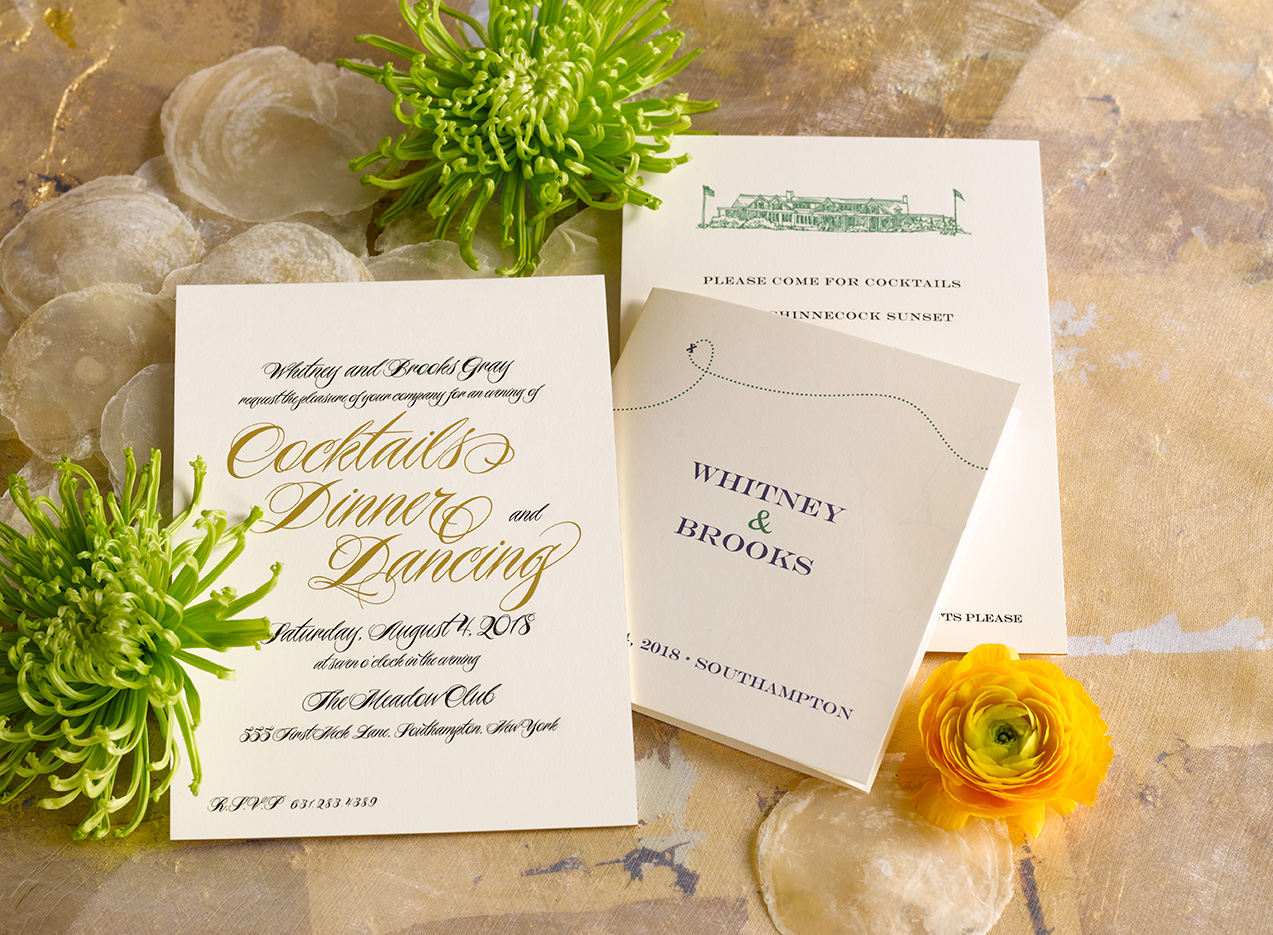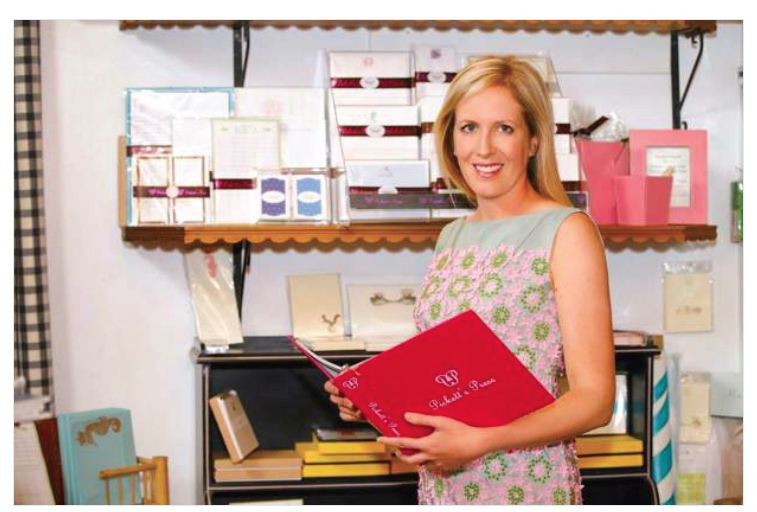TOP TEN TIPS BRIDES MUST KNOW BEFORE ORDERING WEDDING INVITATIONS

Are you an excited bride to be? Before ordering your wedding invitations, imagine your guests opening the mailbox and finding a beautifully addressed envelope. This is the first glimpse that most of them will have into your wedding event. “A wedding invitation sets the tone for the entire day,” shares Hamptons style icon and Pickett’s Press owner, Kate Pickett. “It signals the formality and style of the event, reflects the personalities of the couple, and has the potential to make the invited guests very excited to be included in the celebration.” KDHamptons asks Kate to share her Top Ten Tips for brides to consider when designing their wedding invitations.

TEN THINGS BRIDES MUST KNOW BEFORE ORDERING WEDDING INVITATIONS
1. Develop a vision of your wedding day that reflects your taste and style: Before the appointment with your wedding invitation consultant. Will it be a black-tie affair, a traditional wedding, an informal beach wedding or something in between? Is it a day or evening event? Will the site of the wedding be in your hometown or a destination wedding? Your choice of invitation will reflect this vision.
2. Determine if your wedding will have a theme or a symbol: Is your wedding in the mountains, at the beach or in the city? Do you want to incorporate references to the location at some point? Is there something that you both mutually enjoy that has a special significance? A custom monogram reflecting the couple can serve as “logo” for your wedding that can be carried through in as few or as many pieces as you’d like. Themes add fun and give the event an identity.
3. Identify the color palette for your wedding: This can key off the bridesmaid dresses, the particular season or a strong liking of a color combination. If you have specific colors that you’d like to be reflected in your invitations or accessories, it would be great to bring any samples or swatches with you to the appointment.

4. Determine the number of invitations that you will need: Keep in mind that the number of invitations required is not the same as the number of guest that you would like to invite. For example, if you are inviting 200 people and three-quarters of them are married, the number of invitations you will need is more like 125 to 150. Always order extra invitations as guest list have a way of expanding, especially as the date approaches. The cost of ordering more than you think you’ll need as part of your initial order is far less than the cost of ordering a small number at a later date.
5. Become familiar with the various invitation printing methods and choices in invitation stock: An experienced wedding stationer can provide samples and explain each of the methods of printing and the differences between them. These methods include letterpress, engraving, embossing, thermography and flat printing. Note any mentions in bridal magazines about the various ways that the invitations that are featured have been printed. If you have a preference, let your stationer know and bring any magazine pages or sample invitations that you like. Paper stock is probably as important as the printing in the overall affect. You should be shown samples of different stocks to include different weights and thickness. The stationer will explain to you the different types and sources of paper available.
6. Decide what is to be included in the invitation packet: You have choices as to how the guest will reply with either a card and envelope or a postcard. Will you need a reception card, direction and accommodation packet or a wedding website card? Do you like pocket folds, belly bands, ribbons, envelope liners, single or double envelopes? You will want to see, touch and feel a variety of samples to help you decide what you like best as you build your perfect wedding invitation suite.

7. Have a rough idea of you budget: Too often, bridal magazines do a disservice by featuring luxurious suites of high-end wedding invitations with all the attendant bells and whistles, but then advise that you assign a woefully low percentage of the budget to invitations and accessories. Educate yourself about the cost associated with different invitation styles and printing methods. A great stationer will inform you about the cost of the options presented and will work with you to create a wedding invitation suite that is within your monetary comfort zone.
8. Determine who will be issuing the wedding invitation: Does your family situation fit the traditional mode in which the bride’s parents issue the invitation? Or does it reflect the new normal of parents divorced, remarried, one or both parents deceased. Your stationer will be able to help you navigate the wording of your invitations to adhere to your family situation and etiquette guidelines. Your job is to make an informed decision about what feels comfortable for you and your family. You will also need to decide whose address will be on the reply envelop or postcard. Similarly, a decision is needed as to whose address goes on the outer envelope flap. Typically this is the address of the person(s) who are issuing the invitation.
9. Decide the method for the wedding envelopes to be addressed: Will you, your family and friends be hand-addressing the envelopes? Will you use the services of a calligrapher? Will you have the addresses printed on the envelopes? Regardless of your decision, order extra envelopes (typically 15%) for any errors in addressing.
10. Make your decision: Making your final decision doesn’t have to be stressful. Be sure to give yourself a chance to be informed and to look at several options before you buy. Trust your own instincts. There will likely be one invitation style that you continue to come back to over and over~ that is generally “the one”. Ask yourself three questions about each of the invitation options that you are considering: – Does it reflect the spirit of the Wedding Day? – Does it fit your style? – Will it excite your guests when they find it in their mailbox?

“Your wedding invitation consultant should be a valuable part of your wedding planning team. You should expect their help to be knowledgeable, professional and above all friendly,” says Kate (above). “A good consultant will ask lots of questions to obtain a better understanding of your vision for your special day. They will have seen many styles and approaches to creating a wedding invitation and will present you with choices that reflect your style, personality and budget. Happy Planning!”

